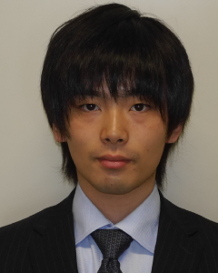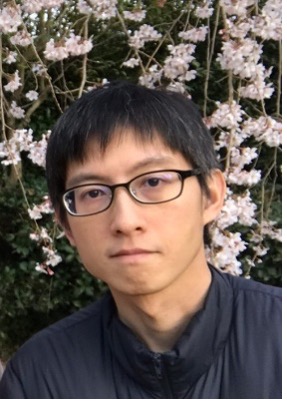Invited Speaker
 Dr. Rei Ueno (Tohoku University)
Dr. Rei Ueno (Tohoku University)
Rei Ueno received the B.E. degree in information engineering and the M.S. and Ph.D. degrees in information sciences from Tohoku University, Japan, in 2013, 2015, and 2018, respectively. He is an Assistant Professor at the Research Institute of Electrical Communication, Tohoku University, and had been joined the JST as a researcher for a PRESTO project for 2018–2022. His research interests include arithmetic circuits, cryptographic implementations, formal verification, and hardware security. Dr. Ueno received the Kenneth C. Smith Early Career Award in Microelectronics at ISMVL 2017.
Title - Secure Implementation of Post-Quantum Cryptography: Challenges and Opportunities
Abstract - Post-quantum cryptography (PQC), which is public key cryptography based on quantum-resistant mathematical problems, is emerging as the recent development of quantum computers. Many studies have been devoted to the design and security analysis of PQC schemes, while their efficient and secure implementation are also very active research topics. Recently, side-channel attacks on re-encryption, which is employed by most post-quantum CCA-secure key encapsulation mechanisms (KEMs), have attracted much attention due to its generality and practicality. This talk introduces attacks and defenses on post-quantum cryptographic implementations, with a focus on re-encryption.
 Dr. Tung Chou (Academia Sinica)
Dr. Tung Chou (Academia Sinica)
Tung Chou is an assistant research fellow at Academia Sinica, Taiwan. He received his Ph.D. degree from Eindhoven University
of Technology. Many of his works were about fast software implementations for post-quantum cryptosystems. His recent
works are mainly about cryptanalysis and novel ways to reduce signature sizes.
Tung Chou is one of the designers of Classic McEliece, a post-quantum key encapsulation mechanism. Classic McEliece is
currently considered by NIST for standardization. He is the main implementer for the 4 official software implementations.
He is also the designer of the 5 `f' parameter sets, which allow faster key generation. Tung Chou is also one of the designers of MEDS, a post-quantum signature scheme. MEDS is a candidate for NIST's recent call for additional signatures
Title - CryptAttackTester: formalizing attack analyses
Abstract - Quantitative analyses of the costs of cryptographic attack algorithms play a central role in comparing cryptosystems, guiding the search for improved attacks, and deciding which cryptosystems to standardize. Unfortunately, these analyses often turn out to be wrong. This talk presents a case study demonstrating the feasibility and value of successfully formalizing what state-of-the-art attack analyses actually do. The formalization process enforces clear definitions, systematically accounts for all algorithm steps,
simplifies review, improves reproducibility, and reduces the risk of error. Concretely, our CryptAttackTester (CAT) software includes formal specifications of (1) a general-purpose model of computation and cost metric, (2) various attack algorithms, and (3) formulas predicting the cost and success probability of each algorithm. The software includes general-purpose simulators that systematically compare the predictions to the observed attack behavior in the same model.
 Dr. Anubhab Baksi (Nanyang Technological University)
Dr. Anubhab Baksi (Nanyang Technological University)
Anubhab Baksi did PhD from Nanyang Technological University, Singapore in 2021. Before that, he finished BSc (Statistics) and BTech (Computer Science & Engineering). Currently he is employed as a Post-Doctoral researcher. His research interest lies in various aspects of cryptography/cyber security and quantum computing.
Title - Hash Based Signatures and Ascon-Sign
Abstract - Digital signatures are among the most commonly used cryptographic tool. However, it is believed that the security of existing state-of-the-art signatures would face a serious challenge against an attacker equipped with a functional quantum computer. To overcome this issue, a relatively new direction of research, which aims at designing signatures secured against the quantum attacks, is currently going on in full swing. One such candidate, called the hash based signatures, is based on the cryptographic hash functions. In this talk, we will go through the basic construction of the hash based signatures. We shall also briefly talk about ciphers like SPHINCS+, SPHINCS-alpha and specially Ascon-Sign.

